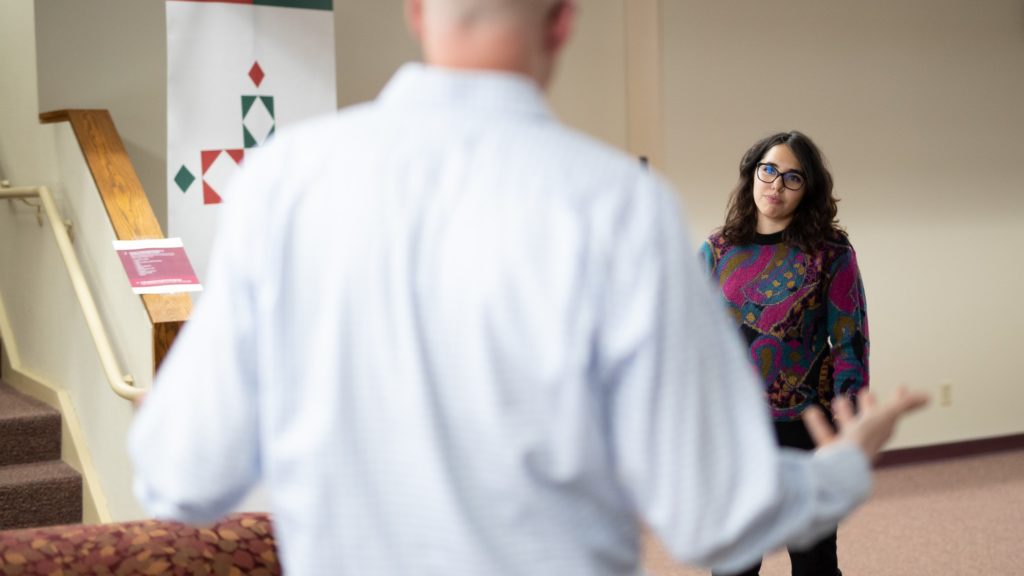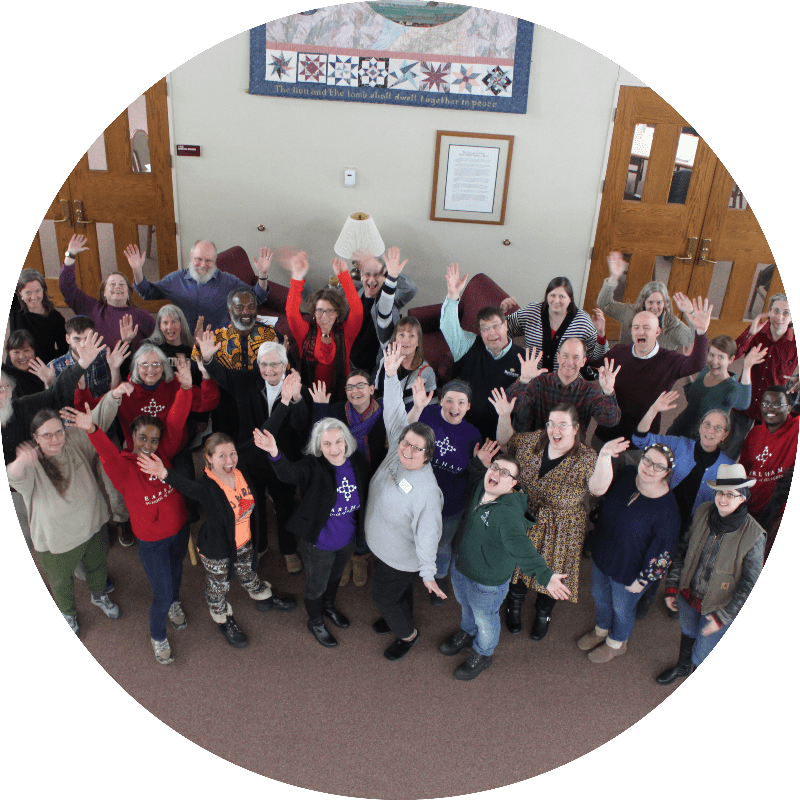Master of Divinity
ESR’s Master of Divinity degree is designed to equip you for many fields of ministry, including pastoral ministry, Quaker ministry, religious leadership, chaplaincy, hospital ministries, religious education, campus ministry, spiritual direction, peace and justice, and writing ministries. Some choose this degree in preparation for professional certifications, work in doctoral studies or advanced professional programs. You can complete this degree program either through residential study or ESR Access, our distance learning program.
Additionally, ESR offers an alternate Master of Ministry degree, which follows the same requirements as the Master of Divinity degree but allows you to focus on overall competency in ministry rather than a specific emphasis. In this case, you receive academic training that supports a wide range of interests.

Emphases That Match Student Interests
Our M.Div. program provides you the opportunity to pursue specific interests by declaring a ministry emphasis and choice of internship. In addition, you can develop your own emphasis in consultation with the faculty as long as it can be supported by our faculty’s areas of expertise. A required internship provides you with practical training that supports the form of ministry you’ve chosen.
Take a Course When You Need It
We understand that not every student is able to commit to a full-time program of graduate study, but that shouldn’t be a constraint if you’re interested in taking seminary courses for professional or personal reasons. This is why we provide the option of applying for admission to our Occasional Student Program and registering for residential or Access classes.
As an Occasional Student, you may take any ESR 100 or 200 level course, or if you have the appropriate educational background, you may take 300 level courses with the permission of the instructor. Occasional students may take as many as two courses per semester.
Please note that students in this program are subject to the same academic performance requirements as M.Div., M.A. and Certificate students.
Program Details
Residential students should be able to complete an M.Div./M.Min. in three years. ESR Access students should plan to commit to five years in order to complete their studies. Both residential and Access students are required to complete 75 credit hours for graduation, through semester long and two-week or week-end intensive classes. Access students have a residency requirement of 8 classes and 4 of those can be in blended format (via Zoom).
Core classes are required of all students. These include formational courses, including spiritual formation and personal practice, and foundational courses, such as Introduction to New Testament. These courses provide a sound basis, and meet educational requirements for, theological education, and prepare students to identify and develop their gifts for ministry. Integrative courses like our Comprehensive Seminar allow students to demonstrate progress and readiness for ministry.
- FC 101 Spiritual Formation and Personal Practice (3)
- FC 102 (4.5) – includes a practicum component
- FC 103 Diversity, Community, and Conflict (3)
- FC 339 Discernment of Call & Gifts (3)
- BS 101 Intro First Testament (3)
- BS 102 Intro Second Testament (3)
- Bible Elective (3)
- TS 101 Intro to Theological Reflection (3)
- TS 336 Ethics (3)
- TS 370 Interfaith Dialog (3)
- Theology Elective (3)
- HS 103 American Religious History (3)
- History Elective (3)
- Introduction to Quakerism (3)
- Entrepreneurial Ministry
- Christian Spirituality
- Pastoral Care
- Pastoral Ministry
- Peace & Justice
- Quaker Ministry
- Ministry of Writing
- Teaching
Four courses in an emphasis, one of which will carry an extra 1.5 credits to include a practicum. Students may petition the faculty with a self-designed emphasis provided that it fits into existing expertise among the faculty.
- SC 370 Supervised Ministry (9)
- SC 380 Comprehensive Seminar (3)
Students may take two electives in any area of the curriculum to enhance their knowledge of a core subject or deepen their skills and experience in an aspect of ministry.

Our faculty
Earlham School of Religion teaching faculty create collaborative learning environments where students are engaged and challenged to think deeply and critically about matters of faith, theology and religious practice.
Next steps
Ministry isn’t just a vocation or a calling—it’s a way of being in this world, seeking to make it whole. ESR is ready to support you in answering your own call to ministry, whatever shape it takes.